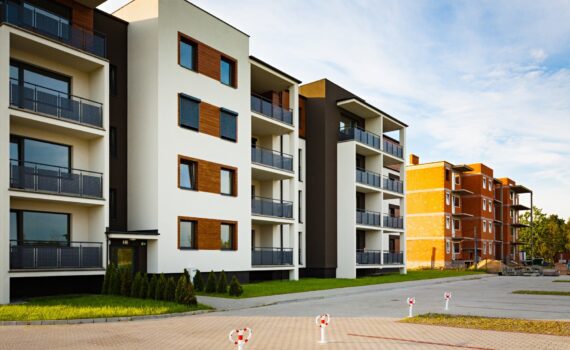Real estate might be one of the best investments you can make if you do it correctly. It can provide passive income and long-term riches, and it can even become a full-time job if you are truly dedicated to your trade. It’s especially beneficial when compared to (and used in conjunction with) other investing options.
Are you thinking about investing in real estate? Use this guide to learn about the advantages and disadvantages of real estate investing, as well as how to get started.
What is real estate investing?
There are numerous ways to invest in real estate. Buying, repairing, and selling properties, commonly known as house flipping, is a popular technique of real estate investing.
Other investment strategies to consider are:
- Purchasing real estate and renting it to long-term renters.
- Purchasing and renting out vacation houses or short-term rental properties.
- Real estate stocks and REITs are two types of real estate investment trusts (REITs).
- Crowdfunding real estate transactions and developments
- You may also use services like Airbnb to rent out your existing residential home (either a room or the entire property). However, if you wish to rent out a room in your house, there are certain factors to consider first.
Benefits of investing in real estate
When done correctly, real estate investing can provide significant benefits. From equity and passive income to a more diverse portfolio, there are numerous ways that real estate can benefit your family financially and in the long run.
Here are some of the most significant advantages of real estate investing in Karaikudi.
You get to build equity for the future
As you pay down your mortgage loan or the property worth of your home increases, you accumulate equity that you can cash out later. This may include selling the house for a substantial retirement injection, utilizing the equity in a cash-out refinance or home equity line of credit (HELOC), or even leveraging it to purchase another property and expand your portfolio.
You get protection against inflation
Unlike most other types of investments, real estate can provide an inflation hedge. That’s because as property values rise (and the value of the dollar falls), so does the cash flow you receive from it. If housing prices rise in your market, for example, rents will inevitably rise as well, implying that you are essentially keeping up with inflation.
You can create regular income and cash flow
Real estate, particularly rental properties, can also generate constant, dependable income (both residential and commercial). If you still have a 9-to-5 job, this can mean extra money for trips and nice-to-haves. And, if you work hard to expand your portfolio, it could lead to a completely new profession.
Real estate investments are also excellent after retirement, supplementing Social Security benefits and any retirement money you may already have.
You can impact your larger community
There are numerous advantages for the markets in which you invest. You can help provide much-needed housing and stability for families, as well as enhance city tax revenues and support the local economy.
What’s the best part? The more your community thrives, the more valuable your assets become. It’s a self-sustaining cycle that can help you generate wealth and long-term financial security.
You can diversify your portfolio
If you already have investments in stocks, bonds, gold, and other instruments, real estate is a smart method to diversify your portfolio and reduce risk. Spreading your investment across multiple vehicles allows you to more effectively offset losses if they occur. (Hint: They almost always do.)
In the long run, this means being able to withstand market swings more effectively and, in many circumstances, emerging with more capital as a result.
You qualify for valuable tax advantages
When you invest in real estate, you gain access to a plethora of tax advantages. Many of your expenses become deductible business expenses, you can deduct your mortgage interest, and depending on how you manage your business, you may even be able to avoid paying self-employment income tax on your rental income.
You can also take advantage of depreciation recapture, which is another tax benefit that might reduce your annual payments.
You might get a new house or vacation home out of it
Finally, real estate investing usually results in the acquisition of some kind of asset. If you purchase a vacation rental property, your family will be able to use it the next time you need a holiday. If you buy a longer-term rental or a fix-and-flip property, you can end up with a new principal residence down the road.
Drawbacks and risks of real estate investing
Obviously, there are numerous advantages to investing in real estate. But what are the disadvantages? What should you avoid before jumping in?
Here are some of the most significant downsides of real estate investing.
It requires a lot of upfront capital
Purchasing an investment property is not inexpensive. You’ll require a large sum of cash or a pricey mortgage loan. If you decide to finance the home, you’ll also need a down payment, closing charges, and cash reserves (most loan programmes require at least six to 12 months of mortgage payments on hand for investors).
In addition, if you’re flipping the home or renting it out, you’ll need money to fix it up and promote it.
It can be time-consuming
Buying, selling, and repairing real estate takes a significant amount of time and effort. And what if you’re also a landlord? That means you’ll be putting in even more hours. Though you might employ a property management company to do part of the job, that comes at an additional cost – and it will undoubtedly reduce your bottom line.
It’s highly localized
Your profits will be determined by the real estate market in which you acquire, sell, and rent out your properties. You could incur significant losses if you do not use caution when making your selection. Investing in real estate necessitates extensive study and on-the-ground knowledge to guarantee you select the appropriate property in the right location.
Properties require regular maintenance and upkeep
If you intend to hold your properties and rent them out, you will require continual income to keep them afloat. This includes rectifying any problems with the property or its systems, performing seasonal upkeep on the house and yard, and cleaning and repairing the house between tenants.
There’s added liability
There is a lot of risk involved with renting out properties, both short and long term. You could be held liable if an accident occurs in the residence or if you fail to obey local rental laws. And if you’re a sole landlord – that is, you don’t operate as an LLC or company – these liabilities could jeopardise your personal fortune and assets.
You lose liquidity
When you invest your money in a property, it gets more difficult to obtain. Before you can see a penny of equity, you must first fix up the house, list it, advertise it, and sell it, as well as wait for the mortgage to close. While this isn’t a significant concern in most cases, if you’re in a financial crunch and need immediate cash, your real estate assets may make receiving that money difficult.
How to minimize risk in real estate investing
Real estate investing entails some danger, but there are numerous strategies to mitigate that risk and ensure your (and your money’s) safety. For example, you can:
- Obtain a comprehensive home inspection for each property you purchase: When viewing the property, you should consider bringing in an experienced contractor to help you determine what repairs are needed and how much they will cost.
- On each transaction, consult with a real estate attorney: This might assist you to reduce responsibility and guarantee you’re following local rules.
- If you’re renting out a property, make sure you get landlord insurance: This can shield you from liability if something goes wrong at home.
- Have an exit strategy in place: You should have a plan in place for what you will do with the home if the market turns or you require immediate cash. Could you make it a short-term rental? Do you want to live there? It is vital to have a backup plan.
You should also exercise caution when selecting properties. Work with an expert real estate agent to gather comparable sales (comps) in the region and verify you’re making the best long-term decision.
Getting started in real estate investing
Are you ready to begin your career as a real estate investor? First, read our guide on the fundamentals of real estate investing. Then check out our guides for house flipping, house hacking, REIT investing, and crowdfunding.









